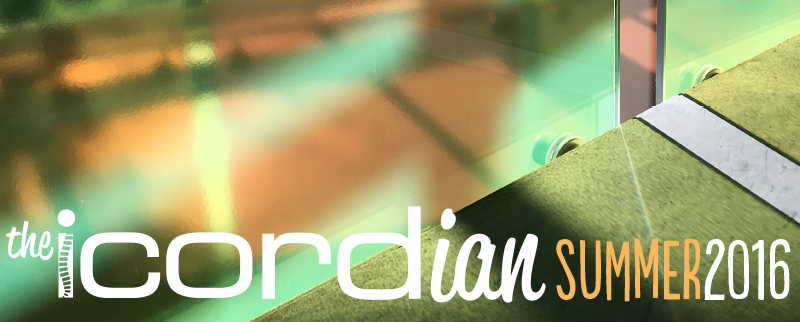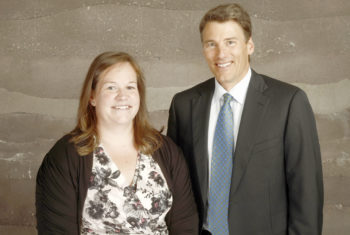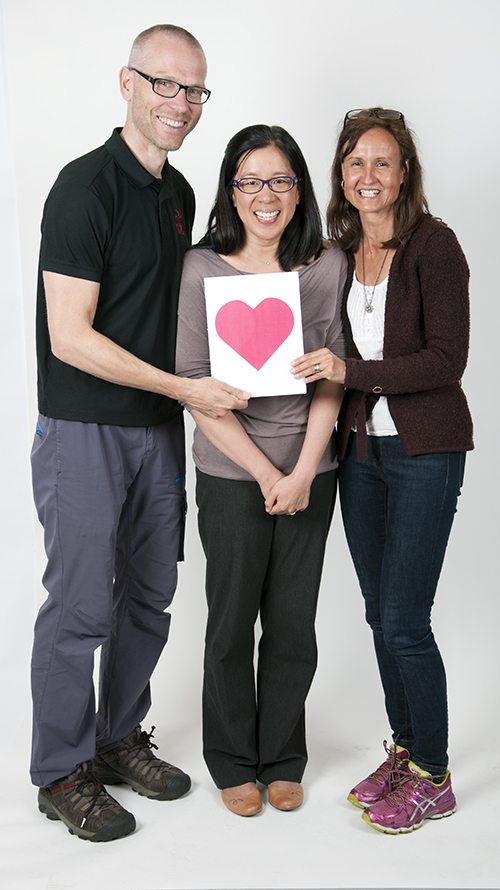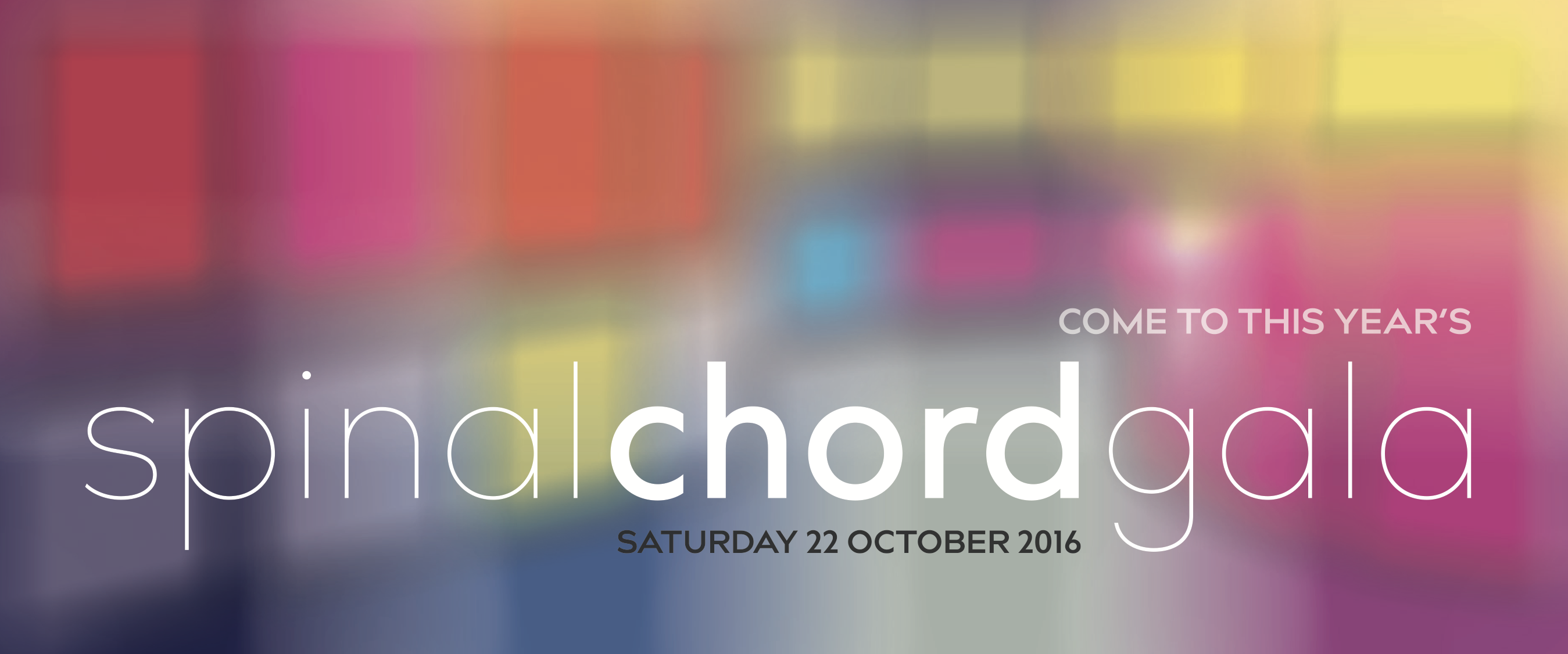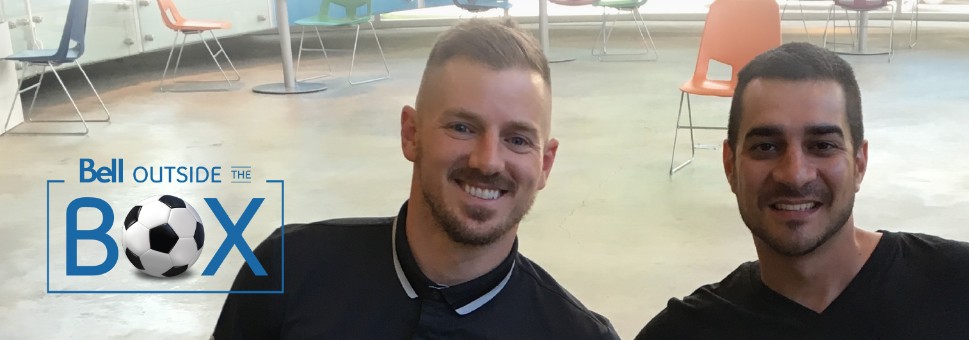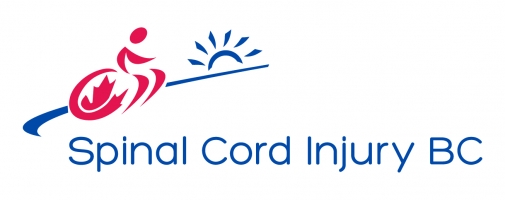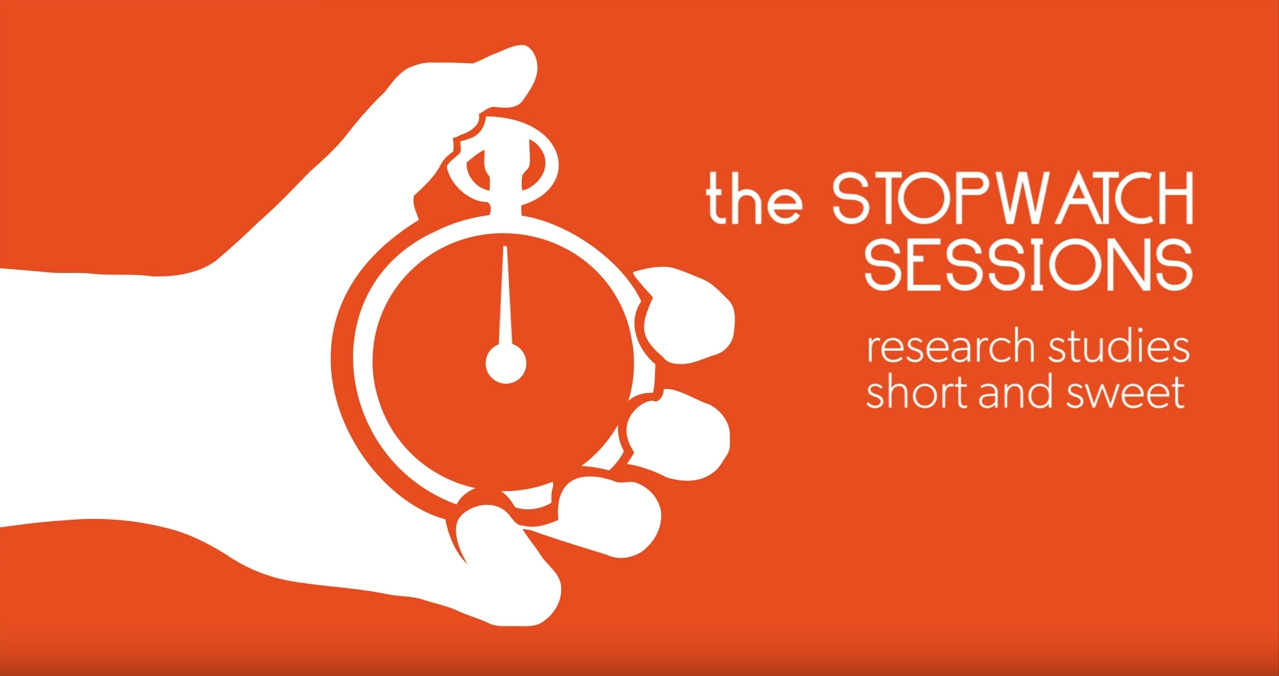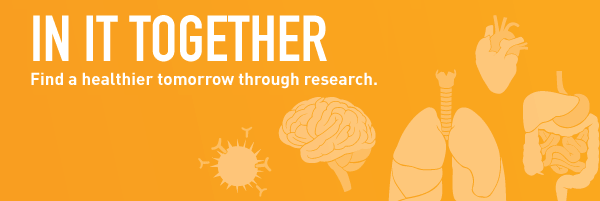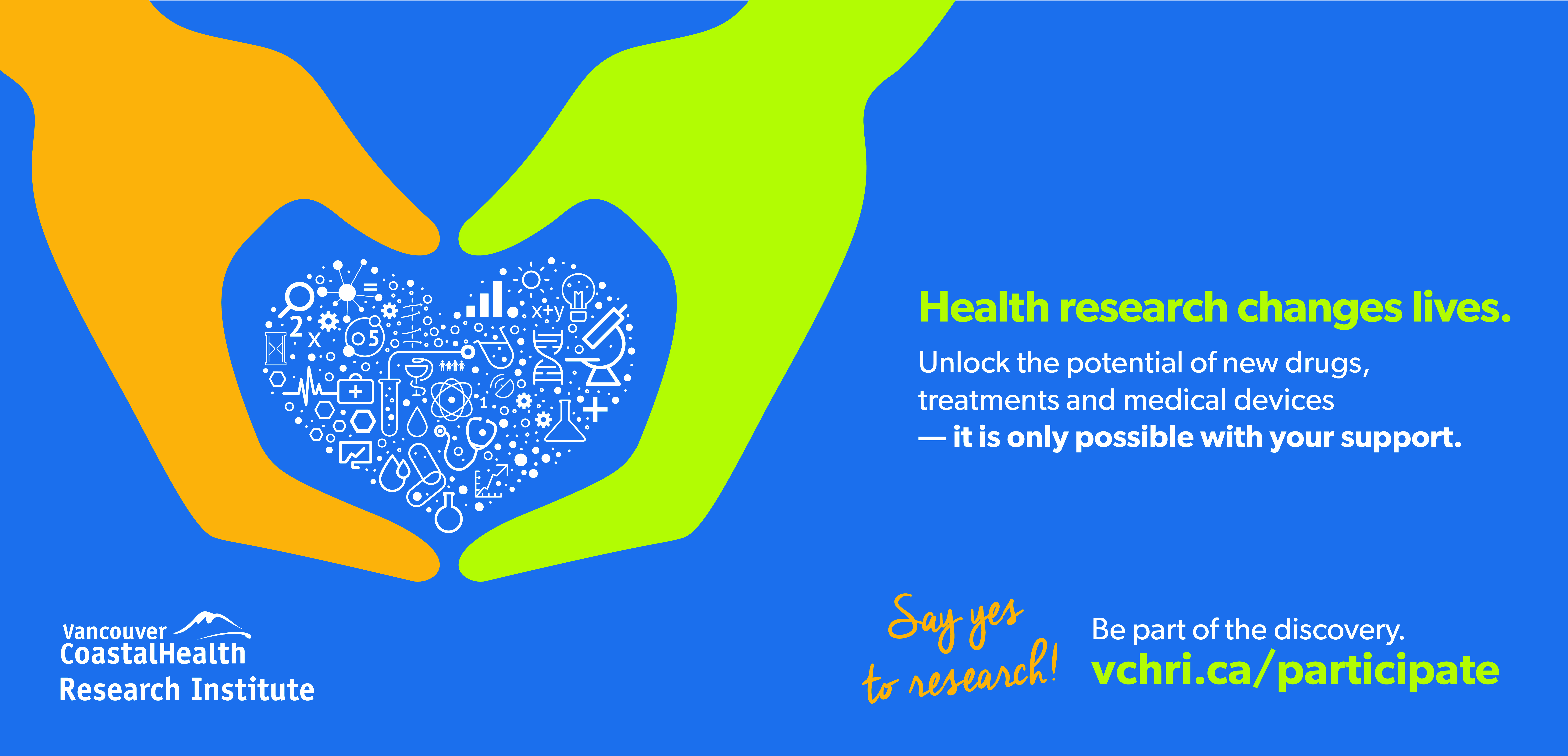In this issue, we tell you about ICORD trainees’ winning a bevy of awards, introduce you to some visiting scholars from Sweden, say goodbye to one of our favourite Work Learn Students, and share an impressive story of recovery. Plus: ICORD and the Whitecaps team up to take defender Jordan Harvey “Out of the Box,” the latest news from our partners, and more!
As usual, ICORDians are making an excellent showing in this awards season, but one trainee has accomplished the impressive feat of winning honours for academic performance, community service, and personal achievements. This year, doctoral candidate Peggy Assinck from the Tetzlaff Lab won the Top Graduating Student Award from VCHRI, an Award of Excellence from the City of Vancouver, and a Gert Vorsteher Memorial Award from BC Rehab. “Winning the awards has been super exciting and I am honoured,” said Peggy.
Peggy is studying myelin—the substance that surrounds and protects nerve fibers—and the role it plays after a spinal cord injury. The Top Graduating Doctoral Student award was in recognition of her research excellence and the contribution it has made to VCHRI. “The award allowed me to go to Tuscany, Italy, for a myelination conference with some of the best researcher is in the world,” said Peggy. “Networking at such an important meeting was a great opportunity for my career.”
In July, Peggy was recognized by the City of Vancouver for her work on the Learn to Play Sledge Hockey program, which she runs with fellow ICORDians Mike Lee and Doug Brown at the Hillcrest Community Centre. The Award of Excellence for Peggy and her team was in the Accessible City category, which honours contributions to “accessibility, inclusion, and elimination of barriers to full participation for persons with disabilities.”
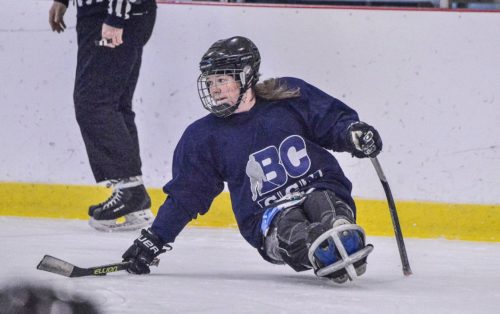 The City of Vancouver recruited Peggy five years ago to start a sledge hockey program. Peggy has more than 20 years of experience in sledge and plays on Canada’s national women’s team and BC’s provincial men’s team along with Mike Lee. Growing up in Ontario, where every major city has a sledge team, Peggy wanted to bring some of that culture to BC. “For me this program has been really important,” said Peggy. “Because when I was young, I didn’t realize that I could access sports as a person with a disability. Sports have allowed me to become the person I am today.” Peggy was born with spina bifida.
The City of Vancouver recruited Peggy five years ago to start a sledge hockey program. Peggy has more than 20 years of experience in sledge and plays on Canada’s national women’s team and BC’s provincial men’s team along with Mike Lee. Growing up in Ontario, where every major city has a sledge team, Peggy wanted to bring some of that culture to BC. “For me this program has been really important,” said Peggy. “Because when I was young, I didn’t realize that I could access sports as a person with a disability. Sports have allowed me to become the person I am today.” Peggy was born with spina bifida.
Learn to Play Sledge Hockey is an inclusive program for all athletes with and without disabilities. If you’re interested in participating it happens from September to March every Friday at Hillcrest Centre with sessions for youth and intermediate players. Contact the Hillcrest Centre for more information.
Parents of players in the program nominated Peggy, Mike, and Doug for the award. “That was a really cool experience,” said Peggy. “The people winning these awards were absolutely amazing.” Other winners included people dedicated to environmental sustainability, healthy lifestyles, and diversity.
The BC Rehab Gert Vorsteher Memorial Awards are given to those who have shown remarkable determination towards pursuing their rehabilitation goals and have, in turn, regained their personal independence. Peggy and several others received the award in May. “I think a lot of people in my academic life don’t know about my involvement in the disability community. So bringing those two things together is great,” said Peggy.
Peggy will be submitting and defending her Ph.D. thesis this year and plans to take on a new post-doctoral researcher role in the future while continuing to participate in her many athletic and coaching activities.
Recent ICORDian Awardees
-
Dr. Aaron Phillips, Killam Postdoctoral Research Prize (Krassioukov lab)
-
Jordan Squair, Killam Doctoral Scholarship (Krassioukov lab)
-
Greg Duncan, VCHRI Rising Star Award (Tetzlaff lab)
 ICORD had the privilege of welcoming Dr. Anna Bjerkefors and Mats-Erik Bjerkefors to ICORD last month. The esteemed physical activity researcher and trainer traveled from Sweden to join Dr. Tania Lam in a research project as part of the Blusson Integrated Cures Partnership Distinguished Visiting Scholar Program.
ICORD had the privilege of welcoming Dr. Anna Bjerkefors and Mats-Erik Bjerkefors to ICORD last month. The esteemed physical activity researcher and trainer traveled from Sweden to join Dr. Tania Lam in a research project as part of the Blusson Integrated Cures Partnership Distinguished Visiting Scholar Program.
Anna is physical therapist and lecturer at the Swedish School of Sport and Health Sciences with a specialty in spinal cord injury, and she holds a doctorate in neuroscience. Her husband, Mats-Erik Bjerkefors, is a sports trainer based at the RG Aktiv Rehabilitering (Active Rehabilitation) at Bosön, a sports complex outside of Stockholm. For more than 20 years, they have built their work together upon the idea that physical activity is possible and crucial for everybody with a SCI to maintain health and quality of life
The Bjerkefors were joined by Swedish physiotherapist Anna-Carin Lagerström to conduct a four-day workshop with Dr. Lam on “Exercising with a Spinal Cord Injury” for PARC students and SCI peers. Anna-Carin is the co-author of “The art of healthy living with physical impairments,” a guidebook to healthy lifestyle, nutrition, mindfulness, and exercise for people with disabilities. A digital version of the book is available for free on the publisher’s website. Dr. Lam and Dr. Chris West also delivered guest lectures during this workshop.
During the Bjerkefors’ stay at ICORD in July, their focus was to develop physical activity programs at PARC and train volunteers in the theory and practice of physical activity training. An innovative component of the programming at RG Aktiv Rehabilitering is the inclusion of SCI peers as physical activity ‘role models’ for the SCI community, a concept that PARC plans to emulate moving forward in collaboration with SCI BC. SCI peers paired with fitness trainers play an active role in leading group exercise classes such as arm-cycling (spinning), circuit training, and spin-boxing (a combination of arm cycle and boxing activities). Mats-Erik has developed these specialized techniques in his practice in Sweden and implements them in collaboration with SCI ‘role models’ (peers).
Inspired by this inclusive approach to physical activity, the PARC team is currently looking to expand the role of SCI peers at ICORD. The team is also particularly interested in understanding the effects of these exercises not only on cardiovascular fitness but also on how they confer benefits to seated balance, trunk muscle function, and many crucial activities of daily living, such as transfers. For this aspect, ICORD has benefited from the expertise of Anna, who has led research that has provided evidence for sparing of trunk muscle function below the level of injury in people with complete SCI. Anna has also led the development of international classification protocols of trunk function, which are currently used for the classification of Paralympic athletes.
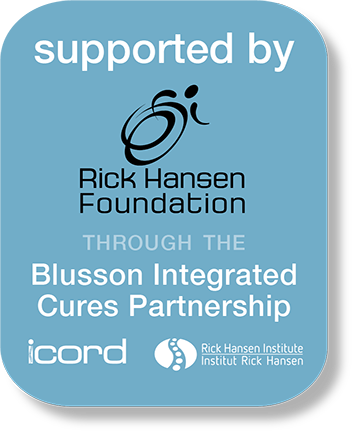 We look forward to the productive partnership between Dr. Lam, PARC, and our Swedish guests!
We look forward to the productive partnership between Dr. Lam, PARC, and our Swedish guests!
ICORD is very grateful to the Blusson Integrated Cures Partnership for supporting this international initiative. The BICP is a collaboration between the Rick Hansen Institute and ICORD made possible by funding from the Rick Hansen Foundation. The purpose of this partnership is to strengthen and grow the collaboration between these organizations and to provide support and leadership to their international efforts to identify cures for people with spinal cord injury.
Join us on October 22 at the Spinal Chord Gala: an elegant and fun event bringing together Vancouver’s Arts & Science communities for an evening of live music, excellent food and drinks, and fascinating company, in the spectacular atrium of the Blusson Spinal Cord Centre. This interdisciplinary fundraiser celebrates the achievements and objectives of ICORD and the Vancouver Cantata Singers.
At the 2015 gala, we raised more than $42,000, which will go towards the Vancouver Cantata Singers’ operating costs and a number of programs at ICORD, including equipment grants, staff awards, and the resource centre in the BSCC.
Tickets ($110 with an $80 tax receipt) are available now online and from the ICORD Admin Office.
We are still seeking event sponsors. If you have any suggestions for individuals or businesses we could contact, please let us know.
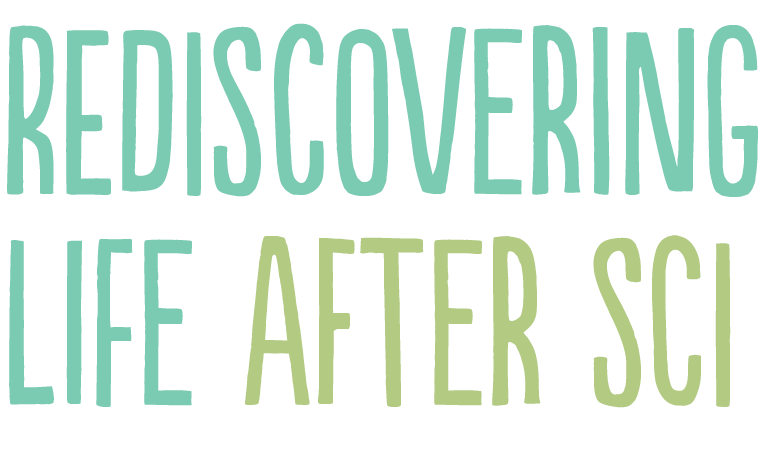 “Son, you will die after seven years.”
“Son, you will die after seven years.”
These were the words that Omar Al-Azawi’s doctor said to him as he lay in the hospital bed with a broken neck.
Two weeks earlier, during an excursion on a hot summer day, Omar Al-Azawi had dived into a river. When he didn’t surface immediately, his friend jumped in and pulled him from the water. Omar fell into a coma, regaining consciousness two weeks later, unable to recognize his mother and confused as to why he wasn’t able to feel or move his limbs.
He had broken his neck at the C5 level.
For three months, Omar stayed in the rehab hospital to receive treatment. However, the quality of the rehab services was not what Omar expected. “Those were the worst days of my life,” said Omar. “The [hospital staff] didn’t take care of you… They just gave you a room.”
Before his accident, Omar lived in Baghdad with his family, where violence and bombings were part of day-to-day life. Omar’s grandmother and a few of his friends had been kidnapped and killed – Omar’s father would later join this list.
Despite this dangerous environment, Omar enjoyed his childhood and was an active swimmer and bodybuilder. His dream was to immigrate to North America. He taught himself English by talking to the American soldiers who patrolled his neighbourhood and by watching American television.
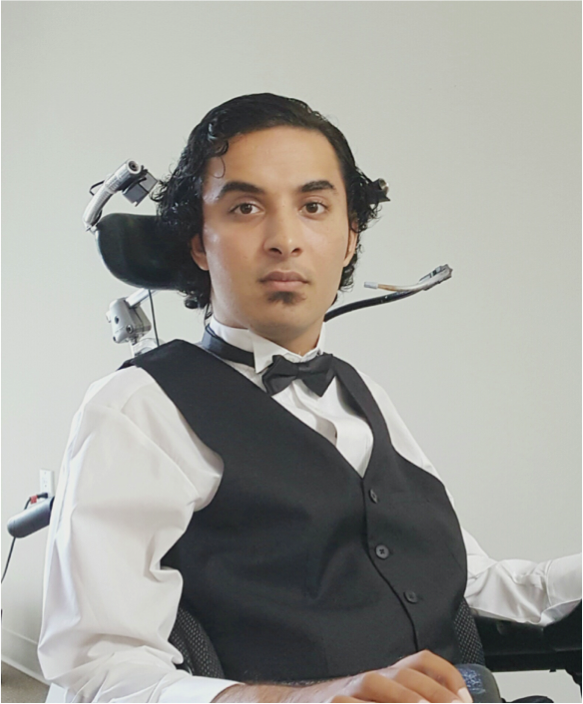 After sustaining his SCI, Omar was shocked at the changes in his life. He was now dependent on his family for care and on his ventilator to help him breathe. He began to withdraw from his friends and rarely went out. His power wheelchair gathered dust in the corner of his room until his family gave it away. Believing what his doctor told him, Omar thought death within the next decade was certain.
After sustaining his SCI, Omar was shocked at the changes in his life. He was now dependent on his family for care and on his ventilator to help him breathe. He began to withdraw from his friends and rarely went out. His power wheelchair gathered dust in the corner of his room until his family gave it away. Believing what his doctor told him, Omar thought death within the next decade was certain.
But slowly, Omar made some progress in his recovery. With the assistance and encouragement of one doctor, Omar began to breathe without using his ventilator. A year later, he was able to remove his tracheostomy tube altogether. Dissatisfied with his progress, Omar began to conduct his own research and sought treatment for his SCI but found little success.
Following the deaths of his three best friends, Omar began to grow concerned for his family’s safety in Baghdad, and he made it his goal to immigrate his family to Canada. After signing up for immigration through the United Nations, Omar checked his refugee status online day after day. A year later, they finally interviewed with the Canadian embassy.
When Omar and his family landed in October 2015, Omar felt a huge sense of relief. “It was like a big exhale,” he said. “Like I had been holding my breath for almost two years.” Although he had traveled halfway around the world to a new country, Omar immediately felt like he belonged in Vancouver.
At the time, Omar had a severe bladder infection but did his best to hide his symptoms from his family as he wanted to complete the immigration process first. When they arrived at the Immigrant Services Society’s Welcome House, the staff immediately sent Omar to St. Paul’s Hospital for treatment. Three weeks later, Omar was admitted to GF Strong’s Inpatient Spine Unit to receive specialized rehabilitation services.
Although Omar had finally accomplished his goal of arriving in Canada, he was now left with a sense of loss. His sole focus for the past two years had been to ensure his family’s safety and, having accomplished that goal, Omar struggled to identify the next steps in his own life.
With help from his peers and the staff at GF Strong over the next few months, Omar developed a sense of purpose and confidence in his ability to manage his SCI. He began painting and going outside by himself. For the first time, Omar was ready to live and start his life anew. “People believe in me and that’s what pushes me and makes me keep going,” he said. “After all this hard work, I finally get what I’ve been waiting for – my city and my life again. And I will do more!” In recognition of his determination, Omar received one of this year’s prestigious Gert Vorsteher Memorial Awards.
Omar became involved in ICORD’s research studies during his time at GF Strong. “I’ve always wanted to make a difference and there’s nothing better than helping people find treatment by participating in SCI research,” he said. “ICORD has the best spinal cord injury research in the world because all of the best research from around the world is mixed in this one centre.”
His advice for those who are newly injured? “If you get a spinal cord injury, your life is not ending. It just means you have a new challenge. Everyone has their own challenges and it all depends on you – do you want to face it or do you want to hide? If you face it, you will find that there’s hope. So always face your challenge – you keep going.”
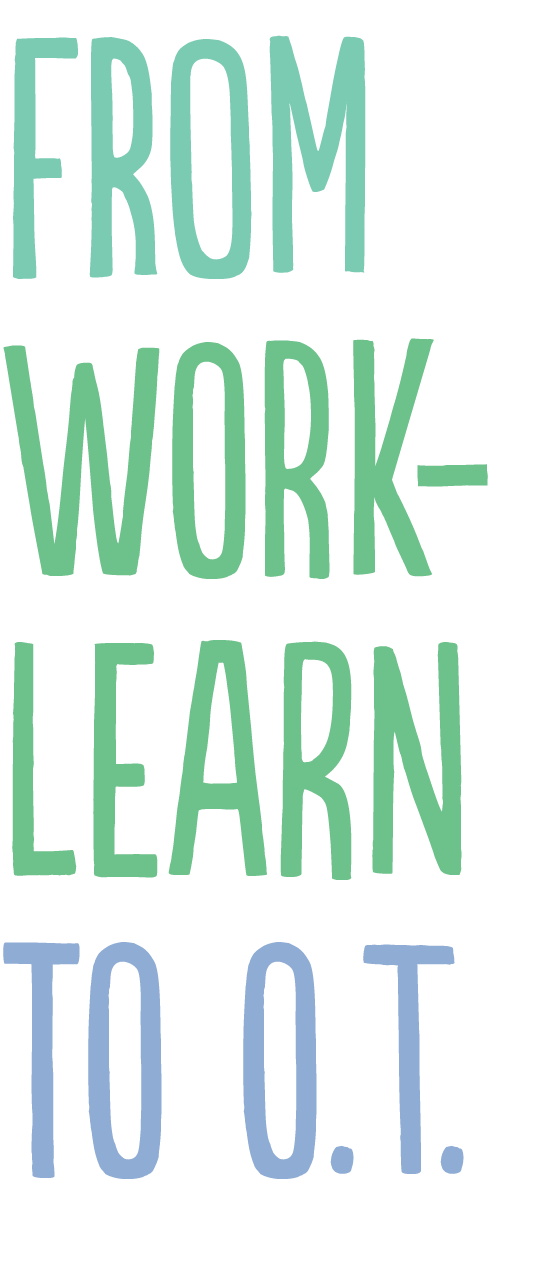 We have the bittersweet pleasure of wishing farewell and congratulations to ICORD favourite, Clarice Kwok. She has just left her Social Media Project Assistant position to begin work as an Occupational Therapist for Vancouver Coastal Health. This only three weeks after completing her Master’s degree in Occupational Therapy at UBC.
We have the bittersweet pleasure of wishing farewell and congratulations to ICORD favourite, Clarice Kwok. She has just left her Social Media Project Assistant position to begin work as an Occupational Therapist for Vancouver Coastal Health. This only three weeks after completing her Master’s degree in Occupational Therapy at UBC.
Clarice joined the ICORD team in May of 2012 as a UBC Work Learn student. She started off doing administrative work, soon after proving her skills in social media, creating communications material, and interviewing ICORDians about the latest news happening in the Blusson Spinal Cord Centre. “I love ICORD. Coming to work has always been something I really look forward to,” says Clarice on her last day at work. “I’m really sad to be leaving.”
When Clarice arrived at ICORD she was in her fourth year of an undergraduate degree in Biology and was planning to pursue a career in accounting. The tennis club patrons where she worked had convinced her that reviewing tax forms was for her. But when she arrived at ICORD, she was intrigued by the clinical research she saw on the third floor of the BSCC.
“I had never thought outside of basic science,” she says. “And that research world felt so untouchable. The clinical research feels more human.”
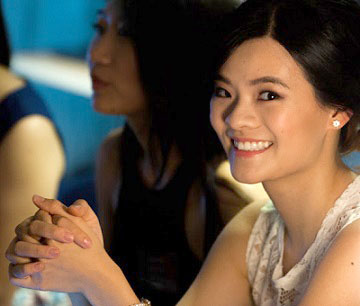
Clarice credits her conversations with Drs. Bonita Sawatzky and Ben Mortenson with helping her decide to pursue her Master’s degree in Occupational Therapy. She loved the creative mixture of health care and education. She then took on an extra year at UBC to get the prerequisites for the OT Master’s program and abandoned accounting. As she goes on in her new career, Clarice hopes to work on building clinical evidence for OT interventions.
While Clarice says every day at ICORD was her favourite (though getting to touch royalty was a highlight), one of the most important parts of ICORD was Cheryl Niamath, who hired Clarice. “Cheryl really fosters and encourages creativity,” says Clarice. “And her support and guidance really means a lot to me.”
We want to wish Clarice good luck in her new career and hope that she doesn’t stray too far from ICORD.
 ICORD Principal Investigator Dr. Brian Kwon recently leveraged funding from the Blusson Integrated Cures Partnership (BICP) to win two major grants. Dr. Kwon received a $1.9 million grant from the United States Department of Defense based on work done with a BICP-funded ICORD Seed Grant of $20,000. The project, “Near Infrared Spectroscopy [NIRS] for Non-Invasive Monitoring of the Injured Spinal Cord,” will study the effectiveness of NIRS, an optical technique used for a number of medical diagnostics, in monitoring spinal cord injuries.
ICORD Principal Investigator Dr. Brian Kwon recently leveraged funding from the Blusson Integrated Cures Partnership (BICP) to win two major grants. Dr. Kwon received a $1.9 million grant from the United States Department of Defense based on work done with a BICP-funded ICORD Seed Grant of $20,000. The project, “Near Infrared Spectroscopy [NIRS] for Non-Invasive Monitoring of the Injured Spinal Cord,” will study the effectiveness of NIRS, an optical technique used for a number of medical diagnostics, in monitoring spinal cord injuries.
Dr. Kwon also used $186,000 in funding from the BICP to create a successful proposal for the MITACS Accelerate program. Dr. Kwon will receive $413,000 to support trainees associated with the Rick Hansen Institute-supported Brain Canada Biomarker Initiative. His three-year study, “Biomarkers for Crossing the Translational Divide in Acute Spinal Cord Injury”, has three objectives: first, to expand currently limited knowledge of what is actually happening biologically in the spinal cords of human SCI patients; second, to establish biomarkers that identify severity of injury to the spinal cord; and third, to create biomarker linkages with an intermediary model where novel therapies can be developed for eventual human clinical trials.
 Update on the BICP-funded Biobank
Update on the BICP-funded Biobank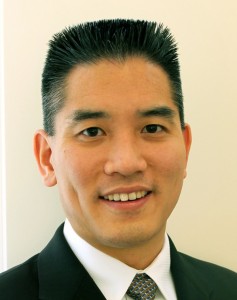
Through the BICP, RHI and ICORD are proud to fund the first biobank in Canada for human spinal cord and cerebro-spinal fluid (CSF). The biobank is a novel translational research resource, a collection of biospecimens (samples of tissue, blood, fluids) to support biomedical research that will ultimately improve patient outcomes following SCI. The biobank was launched earlier this year, and the project is led by Dr. Kwon. While as of the end of July 2016, no spinal cord specimens had yet been collected, blood samples and CSF of approximately 90 patients had been incorporated.
Did you know that volunteers at our SCI Community Resource Centre prepare summaries of scientific papers and post them on our blog? If you’re interested in what’s going on in SCI research around the world, this is a good place to look.
Rick Hansen Foundation launches Access4All
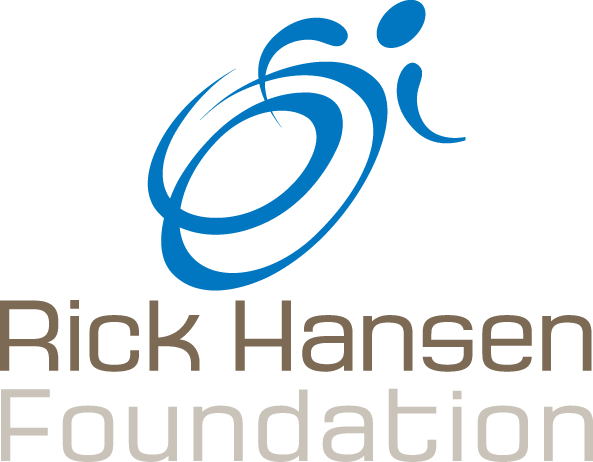 To celebrate and honour Canada’s 150th birthday and the 30th anniversary of the Rick Hansen Man in Motion World Tour, the Rick Hansen Foundation is launching its Access4All Canada 150 Signature Initiative to inspire and empower youth and community leaders across the country to create a more inclusive and accessible Canada. According to Statistics Canada, 3.8 million Canadian adults have a disability (approximately one in seven people), and with our aging population, that number is continuing to grow. One of the most significant barriers that people with disabilities still face is the built environment –essentially all the places that people live, work and play. So, in September 2016, with funding support from the Government of Canada, the Rick Hansen Foundation will grant up to $30,000 to a minimum of
To celebrate and honour Canada’s 150th birthday and the 30th anniversary of the Rick Hansen Man in Motion World Tour, the Rick Hansen Foundation is launching its Access4All Canada 150 Signature Initiative to inspire and empower youth and community leaders across the country to create a more inclusive and accessible Canada. According to Statistics Canada, 3.8 million Canadian adults have a disability (approximately one in seven people), and with our aging population, that number is continuing to grow. One of the most significant barriers that people with disabilities still face is the built environment –essentially all the places that people live, work and play. So, in September 2016, with funding support from the Government of Canada, the Rick Hansen Foundation will grant up to $30,000 to a minimum of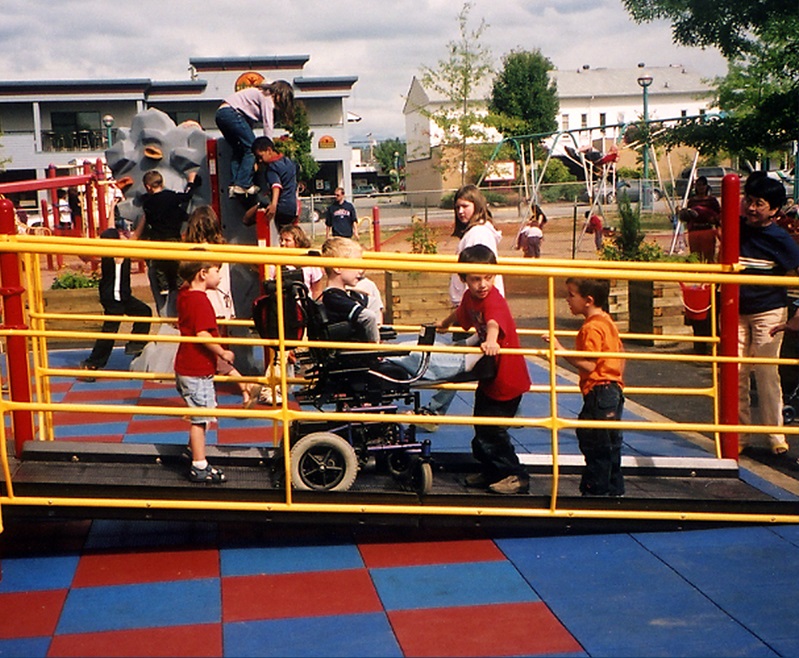 50 eligible “Barrier Buster” projects that improve the accessibility of schools and public spaces.
50 eligible “Barrier Buster” projects that improve the accessibility of schools and public spaces.
The Rick Hansen Foundation’s Access4All Initiative will improve accessibility and inclusion in communities from coast to coast, leaving a legacy for Canada and creating real and lasting impact for Canadians with disabilities.
To learn more about Access4All visit www.rickhansen.com/access4all. Applications for Barrier Buster grants will be open as of September 19, 2016.
The Stopwatch Sessions
SCI-BC has released the Stopwatch Sessions, in which researchers get 45 seconds to pitch why their studies should be important to you. Watch ICORD Principal Investigator Dr. John Kramer talk to Jocelyn Maffin about his research on pain.
New Zealand adopts RHI’s SCI registry model
![]() In New Zealand this month, stakeholders from government and the health care sector launched the New Zealand Spinal Cord Injury Registry in partnership with the Rick Hansen Institute. The Rick Hansen Spinal Cord Injury Registry (RHSCIR) model was adopted as the result of a 12-month pilot study which led to the recommendation for national implementation of RHSCIR for a spinal cord injury (SCI) registry in New Zealand.
In New Zealand this month, stakeholders from government and the health care sector launched the New Zealand Spinal Cord Injury Registry in partnership with the Rick Hansen Institute. The Rick Hansen Spinal Cord Injury Registry (RHSCIR) model was adopted as the result of a 12-month pilot study which led to the recommendation for national implementation of RHSCIR for a spinal cord injury (SCI) registry in New Zealand.
Launched in Canada in 2004, RHSCIR is a prospective observational registry of individuals who have sustained a SCI. RHSCIR contains comprehensive data on health care interventions and outcomes for each of the 5,700 individuals currently enrolled in the registry. By connecting clinicians, researchers and health care administrators together, the goal of RHSCIR is to advance research and improve clinical practice for individuals with SCI and reduce health care costs. The registry is active at 31 major acute care and rehabilitation hospitals across Canada. In the last two years, it has partnered with hospitals in China, Israel and New Zealand to pilot RHSCIR, marking its turn as a truly global study that endeavors to connect the international SCI research and clinical care communities. New Zealand is the first of these three international sites to implement the registry, and the first country outside Canada to implement RHSCIR on a national scale. The partnership between the NZ SCI Registry and RHI’s RHSCIR will enable models of care to be compared and optimized across countries as well as to answer important research questions.
Learn more about the launch of the New Zealand SCI Registry. 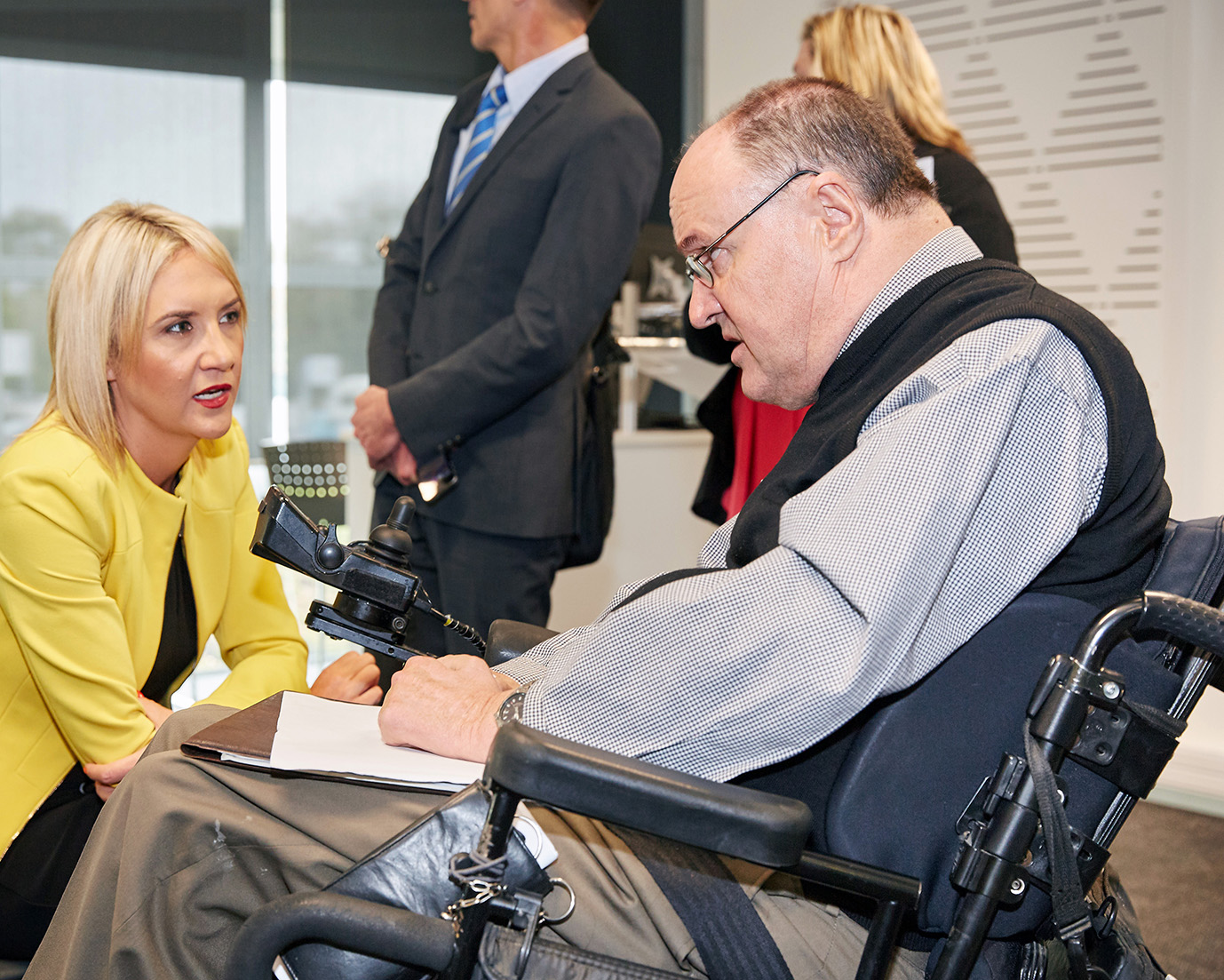 Hon. Nikki Kaye of New Zealand’s Accident Compensation Corporation speaks to Dr. Richard Smaill at the August 1, 2016 NZ SCI Registry launch event in Auckland.
Hon. Nikki Kaye of New Zealand’s Accident Compensation Corporation speaks to Dr. Richard Smaill at the August 1, 2016 NZ SCI Registry launch event in Auckland.
Subscribe to VCHRI’s monthly newsletter, In It Together
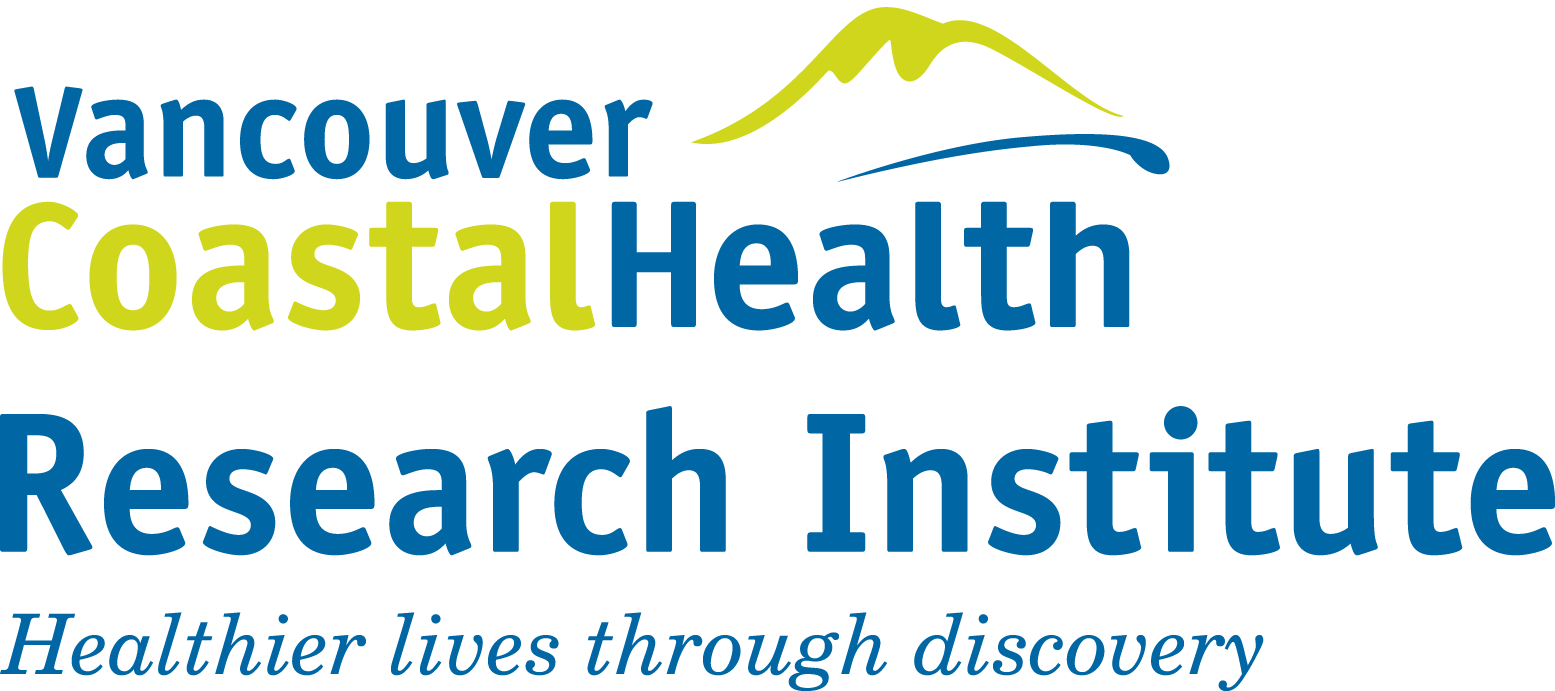 Are you interested in helping others by being part of medical discovery, while learning more about your own health too? Sign up for our monthly e-newsletter, In It Together. In It Together is a new VCH Research Institute monthly e-newsletter about the diverse and life-changing research happening at Vancouver Coastal Health. Receive information about clinical trials and research studies every month. Learn about how to get involved and help expand our understanding of health and disease. Sign up today to see how VCH Research Institute is changing lives through discovery!
Are you interested in helping others by being part of medical discovery, while learning more about your own health too? Sign up for our monthly e-newsletter, In It Together. In It Together is a new VCH Research Institute monthly e-newsletter about the diverse and life-changing research happening at Vancouver Coastal Health. Receive information about clinical trials and research studies every month. Learn about how to get involved and help expand our understanding of health and disease. Sign up today to see how VCH Research Institute is changing lives through discovery!
Please also visit VCHRI’s Find a Research Study to learn about the studies that you may be able to participate in.Research needs you needs you!
 ICORD and the Rick Hansen Institute are working together to identify new treatments for SCI and apply existing treatments for other neurological disorders, injuries and diseases to SCI. Funded by the Rick Hansen Foundation, the Blusson Integrated Cures Partnership provides ten years of stable funding for several multi-year research projects as well as new faculty positions within ICORD, international exchanges to encourage collaboration, research-related events (like the Annual Research Meeting and seminar series) and a consumer engagement strategy which aims to provide people with SCI and their supporters with evidence-based information about the healthcare, services and resources available to best support recovery after SCI and increase consumer involvement in the research process.
ICORD and the Rick Hansen Institute are working together to identify new treatments for SCI and apply existing treatments for other neurological disorders, injuries and diseases to SCI. Funded by the Rick Hansen Foundation, the Blusson Integrated Cures Partnership provides ten years of stable funding for several multi-year research projects as well as new faculty positions within ICORD, international exchanges to encourage collaboration, research-related events (like the Annual Research Meeting and seminar series) and a consumer engagement strategy which aims to provide people with SCI and their supporters with evidence-based information about the healthcare, services and resources available to best support recovery after SCI and increase consumer involvement in the research process.
We are very grateful for this generous support.

